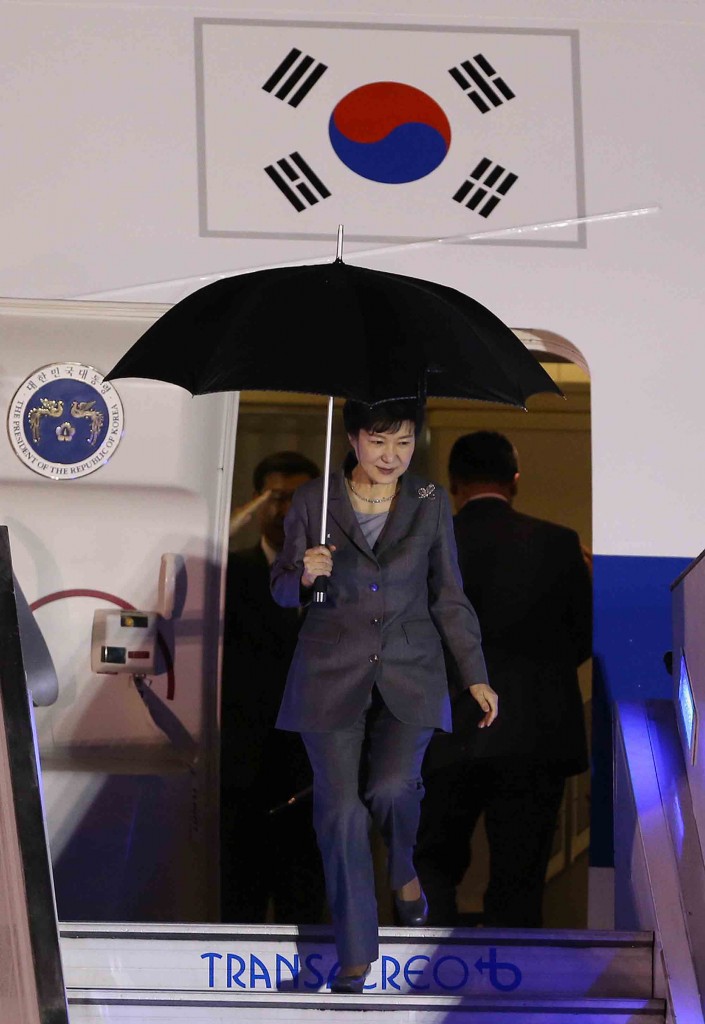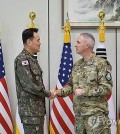- California Assembly OKs highest minimum wage in nation
- S. Korea unveils first graphic cigarette warnings
- US joins with South Korea, Japan in bid to deter North Korea
- LPGA golfer Chun In-gee finally back in action
- S. Korea won’t be top seed in final World Cup qualification round
- US men’s soccer misses 2nd straight Olympics
- US back on track in qualifying with 4-0 win over Guatemala
- High-intensity workout injuries spawn cottage industry
- CDC expands range of Zika mosquitoes into parts of Northeast
- Who knew? ‘The Walking Dead’ is helping families connect
President Park to visit US later this year
SEOUL, April 24 (Yonhap) — President Park Geun-hye will visit Washington later this year to consolidate the nations’ alliance amid a flurry of summit diplomacy between the U.S. and Northeast Asian powers involved in historical and territorial rows, the Foreign Ministry said Friday.
Japanese Prime Minister Shinzo Abe will visit the U.S. next week for a speech at a joint session of the House of Representatives and Senate, the first of its kind for a Japanese premier.
Chinese President Xi Jinping is also visiting Washington later this year.
Xi and Abe met in Jakarta, Indonesia, earlier this week on the sidelines of an Asian-African conference to help thaw tensions over territorial disputes and Japan’s wartime past.
In a 15-minute phone conversation on Thursday, Foreign Minister Yun Byung-se agreed with his U.S. counterpart John Kerry that they will step up preparations for Park’s trip to the U.S. expected later this year, the ministry said in a statement.
Yun and Kerry, however, failed to fix the schedule for Park’s U.S. tour.
Yun is currently in Brazil, accompanying Park on a four-nation tour of South America.
The two top diplomats agreed to make “various” efforts to help South Korea, Japan and China heal conflicts from their shared history and to promote trust among the nations.
They also concurred that a new nuclear accord reached between the two countries will help upgrade bilateral cooperation in the nuclear energy sector.
Seoul and Washington struck a deal on Wednesday over a peaceful nuclear partnership. Through the deal, South Korea has secured a long-term path toward uranium enrichment and research into a new technology to reprocess spent fuel, dubbed pyroprocessing. The nation also reaffirmed its commitment to the global nonproliferation regime.
Yun and Kerry agreed that it is a win-win agreement based on an “unprecedented creative way.”
















